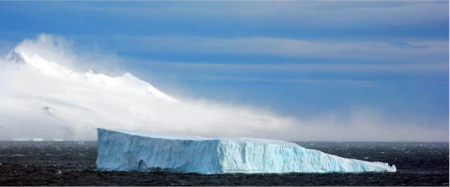| SEARCH |
-

Nov 17, 2015
Reflections on a three-decade legacy
The International Geosphere-Biosphere Programme (IGBP) will come to a close at t...
-
Nov 17, 2015
Use of and access to content on this website
Text and images produced by IGBP in house are free to use with appropriate credi...
-
Nov 12, 2015
Bella Gaia performance and panel discussion to mark IGBP's closure
A musical performance by Bella Gaia will celebrate the achievements and legacy o...
-

Towards Future Earth:
evolution or revolution?
During its three decades of existence, the International Geosphere-Biosphere Pro...
-
A personal note on IGBP and the social sciences
Humans are an integral component of the Earth system as conceptualised by IGBP. João Morais recalls key milestones in IGBP’s engagement with the social sciences and offers some words of advice for Future Earth.
-
IGBP and Earth observation:
a co-evolution
The iconic images of Earth beamed back by the earliest spacecraft helped to galvanise interest in our planet’s environment. The subsequent evolution and development of satellites for Earth observation has been intricately linked with that of IGBP and other global-change research programmes, write Jack Kaye and Cat Downy .
-
Deltas at risk
Around 500 million people worldwide live on deltas, but many of the world's deltas are sinking due ...
-
Climate change: the state of the science
A new data visualization released on the first day of the plenary negotiations at the UNFCCC’s clima...
-
Climate Change:
the State of the Science
Videos now online from the Stockholm public forum to mark the launch of the IPCC's climate report, 2...
Marine ecosystems and climate change
Barange M, Field J G, Harris R H, Hofmann E E, Perry R I and Werner C (eds)

Global environmental change (including climate change, biodiversity loss, changes in hydrological and biogeochemical cycles, and intensive exploitation of natural resources) is having significant impacts on the world's oceans. This handbook advances knowledge of the structure and functioning of marine ecosystems, and their past, present, and future responses to physical and anthropogenic forcing. It illustrates how climate and humans impact marine ecosystems, providing a comprehensive review of the physical and ecological processes that structure marine ecosystems as well as the observation, experimentation, and modelling approaches required for their study. Recognizing the interactive roles played by humans in using marine resources and in responding to global changes in marine systems, the book includes chapters on the human dimensions of marine ecosystem changes and on effective management approaches in this era of rapid change. A final section reviews the state of the art in predicting the responses of marine ecosystems to future global change scenarios with the intention of informing both future research agendas and marine management policy.
Marine Ecosystems and Global Change provides a detailed synthesis of the work conducted under the auspices of the Global Ocean Ecosystems Dynamics (GLOBEC) program. This research spans two decades, and represents the largest, multi-disciplinary, international effort focused on understanding the impacts of external forcing on the structure and dynamics of global marine ecosystems.
Features
* Provides a state of the art synthesis of the structure and functioning of marine ecosystems and their responses to global change
* Summarizes the findings of the GLOBEC research program and objectives, placing them in a broader context
* Features a strong emphasis on pelagic ecosystems and the links between climate, physical forcing, ecosystem dynamics, fish and top predators, with some consideration of resource management
* Examines the reciprocal interactions and feedbacks between marine ecosystems and human communities, with an emphasis on prediction and modeling
* Ideal graduate seminar course material

IGBP closed at the end of 2015. This website is no longer updated.
-

Global Change Magazine No. 84
This final issue of the magazine takes stock of IGBP’s scientific and institutional accomplishments as well as its contributions to policy and capacity building. It features interviews of several past...
-

Global Change Magazine No. 83
This issue features a special section on carbon. You can read about peak greenhouse-gas emissions in China, the mitigation of black carbon emissions and the effect of the 2010-2011 La Niña event on gl...
-
INTERGOVERNMENTAL PANEL ON CLIMATE CHANGE:
How green is my future?
UN panel foresees big growth in renewable energy, but policies will dictate just how big.
-
UK:
'The Anthropocene: a new epoch of geological time?'
Royal Society, Philosphical Transactions A




















